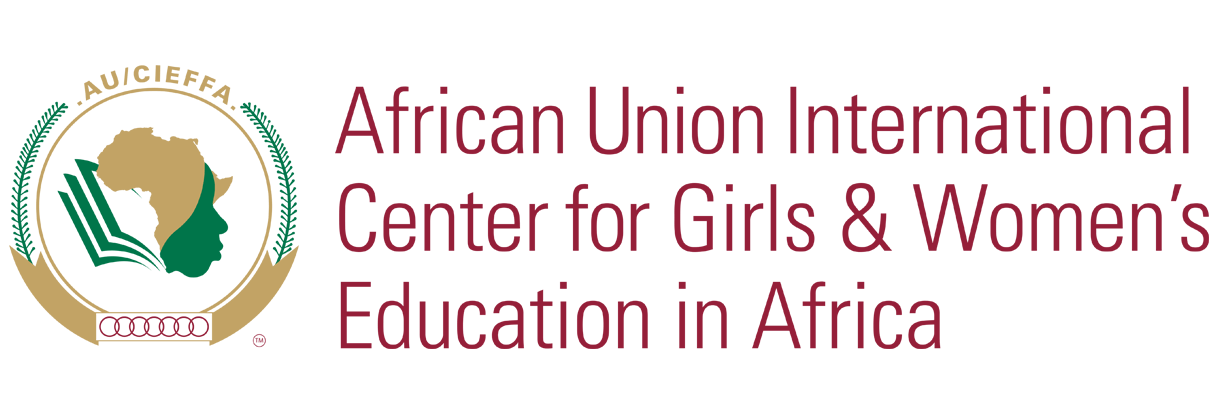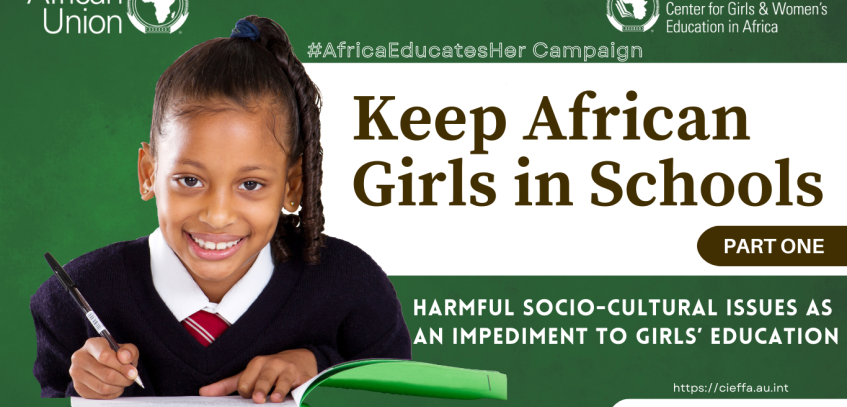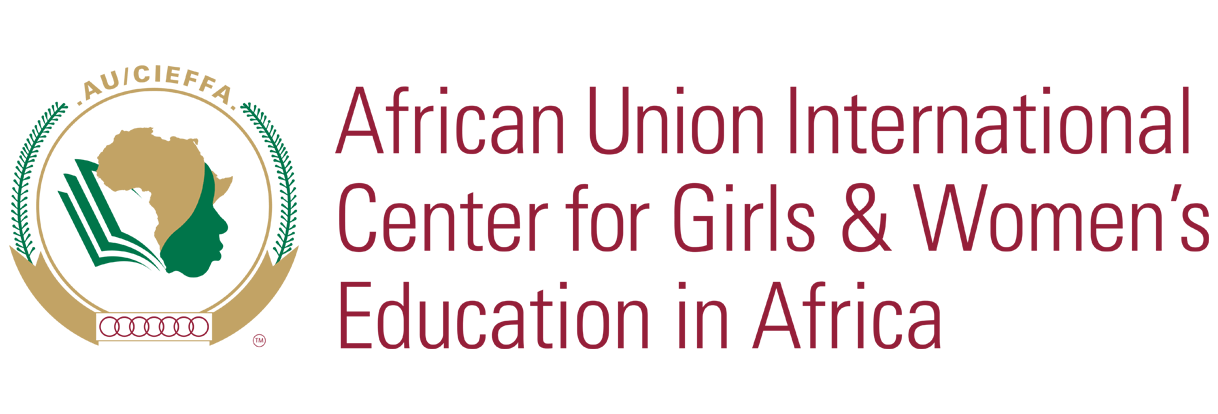Simone Yankey- Ouattara
Lorato Palesa Modongo
Keep African Girls in Schools; A 4 Part Series
African Union CIEFFA launched the #AfricaEducatesHer campaign in September 2020 as a rallying call for AU Member States to adopt affirmative actions and policies to encourage girls to return to school particularly after COVID19 pandemic and to remain in school beyond the pandemic.
In 2023, African Union CIEFFA through the #AfricaEducatesHer campaign engaged its stakeholders working on the intersections of education, gender equality, and humanitarian contexts to explore existing opportunities, challenges and imagined solutions for girls and women’s education in Africa even beyond the Campaign. Past and emerging challenges affecting girls’ and women’s education were identified and categorized into 4 main categories: Socio-Cultural, Economic & Health, Psychological, Political & Environmental thematic areas.
In this 4 Part series of ‘Keep Girls in Schools’, each thematic area will be discussed.
HARMFUL SOCIO-CULTURAL ISSUES AS AN IMPEDIMENT TO GIRLS’ EDUCATION
Some social and cultural practices in African communities have proven to be harmful to children, especially girls, with severe consequences of denying them accessing to education, and affecting completion rates. Most of these practices are underpinned by discriminatory gender social norms, which are supported by societal institutions (family, religious settings, community). Some of the highlighted notable harmful social practices are Female Genital Mutilations, early and forced marriages and early pregnancies. According to the United Nations Children’s Fund (UNICEF), about 12 million girls under the age of 18 are married in Africa. UNICEF further highlights that Sub Saharan Africa shoulders the largest share of child brides worldwide, with about 20% of the overall cases being specifically reported in the region.
Agenda 2063 pronouncements have been made to fight against harmful practices, and the United Nations Sustainable Development Goal 5, target 5.3 clearly articulates ambitions of eliminations of such. It is important to highlight the impact of these practices in girls’ wellbeing and access to education and how it hinders developmental progress. In 2014 the African Union Commission launched a Campaign to eliminate Child marriage and involved different stakeholders: Member States, legislators, parliamentarians, law enforcement agencies, UN Agencies, private sector organizations and civil society organizations. This is in line with the ambitions of the #AfricaEducatesHer campaign.
Girls who marry young are often denied a range of human rights: many discontinue their education, face multiple social inequalities, violations, abuse, serious health risks from early and multiple pregnancies, and missed opportunities for contributing to the socio-economic and political development of their families, communities and the world. Further to child marriage cases, girls are experiencing increases in sexual violations and gender-based violence, which leads to disruptions to schooling and completion rates. The Institute for Security Studies (2017) noted that most school-related violence are also associated with the local and national environments in which schools are situated – for example violent communities or political situations.
Many factors interact to place a child at risk of marriage, female genital mutilations, and early pregnancies. This often includes poverty, lack of educational and economic opportunities and the perception and belief that marriage will provide “protection” and income. Further to this, inadequate legislative framework and weak enforcement of laws make it easier for harmful social and cultural oractices to exist, and affect girls education.
Through the #AfricaEducatesHer campaign, African Union CIEFFA recognizes a critical role that traditional and religious leaders can play in ensuring elimination of these practices, for development. African Union CIEFFA employs traditional and religious leaders to champion for girls education and include the entire community in ensuring girls access schools, and complete learning.
Let us all KEEP GIRLS IN SCHOOL!
References
African Union. 2022. The African Union Accountability Framework on the Elimination of harmful practices.https://au.int/sites/default/files/newsevents/workingdocuments/41106-wd-AU_ACCOUNTABILITY_FRAMEWORK_ON_THE_ELIMINATION_OF_HARMFUL_PRACTICES-_ENGLISH.pdf
African Union Commission. 2015. Agenda 2036: The Africa We Want.https://au.int/en/agenda2063/aspirations
Institute for Security Studies. 2017. Making African Schools Safe for pupils and teachers. https://issafrica.org/iss-today/making-africas-schools-safe-for-pupils-and-teachers
UNICEF. 2023. Is an End to Child Marriage within Reach? Latest trends and future prospects. https://reliefweb.int/report/world/end-child-marriage-within-reach-latest-trends-and-future-prospects-2023-update-enar








